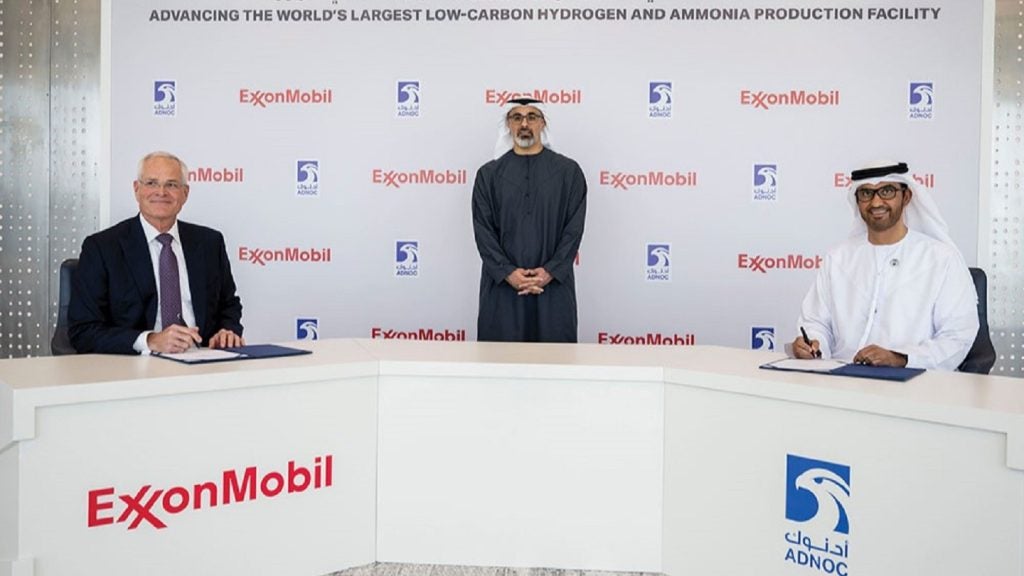Abu Dhabi National Oil Company (ADNOC) has signed an agreement to acquire a 35% equity stake in ExxonMobil's proposed low-carbon hydrogen and ammonia production facility in Texas, US.
Financial terms of the transaction were not disclosed.
The Baytown facility is expected to become the world's largest upon start-up, with a production capacity of up to 1bcf/d of low-carbon or blue hydrogen.
As per the announcement, the plant will produce virtually carbon-free hydrogen, with approximately 98% of carbon dioxide (CO₂) emissions captured, and more than one million tons of low-carbon ammonia annually.
Blue hydrogen is generated from fossil natural gas, with CO₂ emissions mitigated using carbon capture technology.
A final investment decision is due in 2025, with the facility expected to commence operations in 2029.
To minimise emissions from hydrogen production, advanced carbon capture and storage (CCS) technologies will be employed at the Baytown facility.
ADNOC managing director and group CEO Sultan Ahmed Al Jaber said: “This strategic investment is a significant step for ADNOC as we grow our portfolio of lower-carbon energy sources and deliver on our international growth strategy.
“We look forward to partnering with ExxonMobil on this low carbon-intensity and technologically advanced project to meet rising demand and help decarbonise heavy-emitting sectors.”
ExxonMobil chairman and CEO Darren Woods said: “This is a world-scale project in a new global energy value chain. Bringing on the right partners is key to accelerating market development, and we are pleased to add ADNOC’s proven experience and global market insights to our Baytown facility.”
In March, Japan’s JERA and ExxonMobil agreed to explore JERA’s potential role as a co-owner of ExxonMobil’s hydrogen project in Texas and to provide Japan with around 500,000 tonnes of low-carbon ammonia annually from the plant.
Despite the promise of blue hydrogen as a key component in industrial decarbonisation strategies, its environmental credentials have been questioned.
In February, academic research suggested that blue hydrogen production and utilisation could be as or more polluting than direct fossil fuel combustion, mainly due to methane leaks and the unproven commercial viability of CCS technologies.









